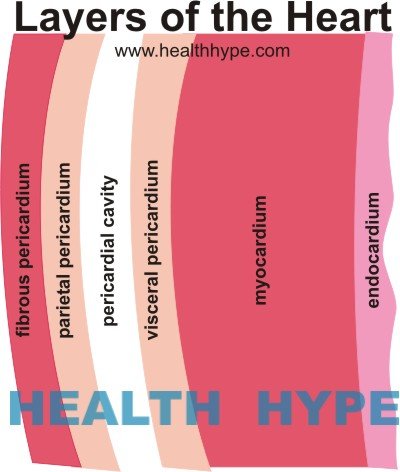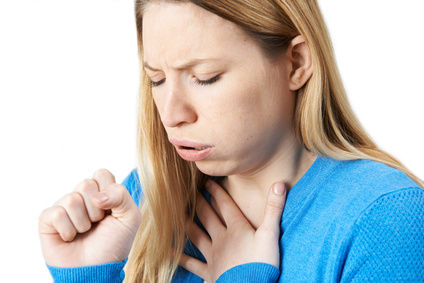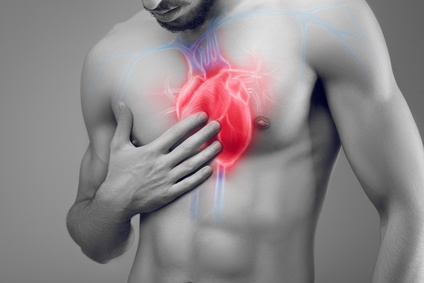Inflamed Heart Muscle (Myocarditis) Causes, Symptoms, Treatment
Although the heart is a muscular pump, it is not only made up of muscle. There are three layers that make up the heart wall. The innermost layer is the endocardium. The muscle layer lies in the middle and is known as the myocardium. This is the thickest layer of the heart wall. The outermost layer is the epicardium. A thin lining surrounds the heart and is known as the pericardium. It secretes fluid into the space around the heart which is a lubricant. Any layer of the heart can become injured or diseased which may cause it to become inflamed.
What is myocarditis?
Myocarditis is inflammation of the muscular layer of the heart (myocardium). Inflammation can affect the muscle function which means that the heart may not be able to pump blood as normal. There a various ways in which the heart muscle may become injured and inflamed.
While the most common cause of myocarditis is a viral infection, which is often acute in nature, other causes such as toxins and immune mediated reactions (drug hypersensitivity, post viral, and autoimmune) should also be considered as possible causes. It can also be caused by illicit substances as is seen with cocaine-induced heart conditions.
Although myocarditis is a serious condition, it does not always need medical treatment. Mild cases may resolve on its own without any treatment apart from strict bed rest. However, in more severe cases both drugs and even surgical procedures may be necessary. If there is extensive damage to the heart muscle, then the heart can fail and even lead to death. It is therefore important that myocarditis is diagnosed, treated and managed by a doctor.
Causes of Myocarditis
The causative factor in myocarditis causes injury to the heart muscle which results in inflammation. In the active phase, the swelling associated with inflammation causes the heart muscle to become enlarged although the heart itself is normal. As the disease progresses and in the chronic setting, hypertrophy may occur. With advanced cases the heart muscle may become flabby and while inflammation can resolve, there may be fibrotic scarring of the myocardium.
Infection
Infectious causes are common in myocarditis and a viral infection of the myocardium (viral myocarditis) is the most common of the infectious agents. However, myocarditis may also arise with bacterial, fungal, protozoal and parasitic infections. Some of the causative viruses involved in myocarditis include :
- Coxsackie B
- Echoviruses
- Influenza (flu)
- Adenovirus (cold)
- Cytomegalovirus (CMV)
- Epstein Barr virus (EBV)
- Rubella (measles)
- HIV
Other pathogens include :
- Bacteria
– Corynebacterium diphtheriae
– Neisseria meningococcus
– Borrelia (Lyme disease)
– Chlamydia psittaci
– Rickettsiae typhi (typhus fever) - Fungi like Candida.
- Protozoa
– Trypanosoma cruzi (Chagas disease)
– Toxoplasmosis
– Helminths like trichinosis
Immune
In these instances the body’s immune system targets the heart muscle and causes inflammation due to one or more trigger factors, which may include :
- Drug hypersensitivity to pencillin, sulfonamides, anti-hypertensive and anti-epileptic drugs.
- Post viral or bacterial (rheumatic fever) infection.
- Autoimmune diseases like SLE (systemic lupus erythematosus).
- Transplants.
Toxic
Chemicals may be toxic to the heart muscle and therefore cause inflammation. This may include certain medication and toxicity in this regard should not be confused with drug hypersensitivity. In toxic causes of myocarditis, the drug may cause direct injury of the heart muscle whereas in hypersensitivity, the drug triggers the immune system to ‘attack’ the heart muscle. Some substances and medication that may cause this type of myocarditis include :
- Chemotherapeutic agents
- Lithium
- Narcotics like cocaine
- Alcohol
- Certain types of poisons
Other Causes
- Giant cell myocarditis
- Sarcoidosis
- Radiation
- Idiopathic (unknown causes)
- Wegener’s granulomatosis
- Endomyocardial fibrosis
- Loeffler endomyocarditis
- Endocardial fibroelastosis
Signs and Symptoms
The clinical presentation depends on the causative factor and any complications of myocarditis that may have arisen. Many patients with acute viral infections may not experience any symptoms (asymptomatic) but ECG abnormalities and tachycardia (rapid heart rate) may be detected upon clinical examination.
- Chest pain, typically behind the sternum (breast bone pain)
- Palpitations
- Rapid and/or irregular heart rate
- Fever (infectious and sometimes immune-mediated causes)
- Shortness of breath
- Fatigue
- Leg swelling
Additional symptoms may be related to the underlying cause, particularly infectious conditions, like diarrhea (viral gastroenteritis), sore throat (strep throat), headache, muscle aches, joint pain, runny nose and sneezing (rhinitis), cough and swollen lymph nodes.
Treatment of Myocarditis
Myocarditis must first be diagnosed. There are several heart conditions that can present with similar symptoms. Even various infectious diseases can cause similar symptoms although the heart may not be directly affected. A range of diagnostic investigations may be conducted, from an electrocardiogram (ECG), chest x-ray and MRI to blood tests and even biopsy of the heart tissue if necessary.
Treatment depends on the underlying cause of myocarditis. It is not uncommon for myocarditis to resolve on its own with little to no treatment. Bed rest is necessary in order not to strain the heart while it recovers. However, at other times medical and sometimes even surgical treatment may be required for myocarditis. The choice of treatment depends on the cause and it is important to consult with a specialist like a cardiologist for treatment and management.
Drugs
Antibiotics and antiviral medication may be used to treat infectious myocarditis while immune suppressants like corticosteroids may be prescribed for autoimmune myocarditis. Other drugs may also be prescribed depending on the cause. In addition, drugs may also be required to reduce the strain on the heart. This is more likely for a weakened heart, be it from myocarditis or some other underlying heart disease that can further complicate myocarditis treatment.
Drugs like ACE inhibitors, which are commonly used for hypertension, may also be prescribed for myocarditis. These drugs widen the blood vessels which allows blood to flow with less resistance. This reduces the workload on the heart to pump blood. Drugs like diuretics help to lower the fluid volume in the body. Less fluid means that the heart has to pump with less force. Depending on the type of myocarditis, these drugs may be discontinued after the heart inflammation resolves.
Procedures
Several surgical procedures may be necessary for severe myocarditis, usually when heart failure is present or imminent. This may utilize devices to oxygenate the blood, pump blood for the heart and also widen the large blood vessels like the aorta to reduce the workload on the heart. Although rare, a heart transplant may be considered in severe cases of myocarditis where there is extensive permanent damage to the heart muscle.








